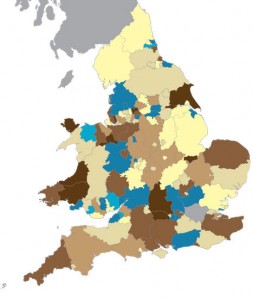A report published today on the controversial welfare reform bill, reveals Parliament may only have been told the partial truth about the overwhelming opposition to the government’s consultation on the planned changes to the Disability Living Allowance (DLA).
Some of the main conclusions of the document, which came to to be known as the “Spartacus report”, are summed up below:
- Only 7% of organisations that took part in the consultation were fully in support of plans to replace DLA with PIP
- There was overwhelming opposition in the consultation responses to nearly all of the government’s proposals for DLA reform
- The government has consistently used inaccurate figures to exaggerate the rise in DLA claimants
- The report shows that nearly all of the recent increase in working-age claimants of DLA has been associated with mental health conditions and learning difficulties. Between 2002 and 2010, the number of working-age DLA claimants – excluding those with mental health conditions and learning difficulties remained remarkably stable
- 98% of those who responded opposed plans to change the qualifying period for PIP from three months (as it is with DLA) to six months
- 90% opposed plans for a new assessment, which disabled people fear will be far too similar to the much-criticised work capability assessment used to test eligibility for employment and support allowance (ESA)
- Respondents to the consultation repeatedly warned that the government’s plans could breach the Equality Act, the Human Rights Act and the UN Convention on the Rights of Persons with Disabilities
The report, based on data obtained through Freedom of Information requests, was written by Sue Marsh, author of the Diary of the Benefit Scrounger blog. It was researched and funded by thousands of sick and disabled people, who are about to be affected by the cuts to their benefits.
A contributor from the campaign group told Help Me Investigate:
“We have an army of over 600 volunteers to act as ‘constituency reps’. Each has the responsibility to contact their MP in their area with the report, so this will go very widely indeed. We are expecting a lot of press coverage.”
With only two days to go until the House of Lords votes on the bill, the group plans to campaign on Twitter as well and hope to get their hashtag #spartacusreport trending this morning.
Writing on the Guardian’s Comment is Free, Sue Marsh said:
“As evidence of the need for reform, the government has always claimed that DLA figures have risen by 30% in eight years. However, our analysis shows that this too is misleading – in fact the government has admitted that it gives a “distorted view”, yet continues to use the figure when pushing for reform.”
